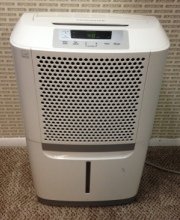Find a Mold Specialist Now
Click or Call, Toll-Free 24/7
Mold and Fibromyalgia
We are sometimes asked if there is a connection between mold and fibromyalgia. It’s not a simple question and there is no simple answer. Fibromyalgia is a complicated condition and doctors do not all agree on its cause or on whether it is related to mold.
Let’s start by talking about the nature of fibromyalgia.
What is fibromyalgia?

You might think that would be an easy question to answer, but it isn’t. It’s a condition characterized by widespread muscle and joint pain as well as chronic fatigue. Researchers think it is caused by changes in the way the brain processes pain signals, essentially amplifying painful sensations. Chemical changes in the brain also occur in people with the disorder.
In addition to chronic pain and fatigue, the National Fibromyalgia and Chronic Pain Association states that symptoms of fibromyalgia may include sleep disorders, headaches or migraines, trouble concentrating, poor short-term memory, depression, dizziness, restless leg syndrome and irritable bowel and bladder. Symptoms vary from person to person and may wax and wane.
Doctors aren’t sure why some people develop fibromyalgia or what causes the condition. It’s believed there is a genetic component, since it seems to run in families. The onset of the disorder often seems to be triggered by illness, infection, or physical or emotional trauma. In this way it may be similar to a condition like cancer, in which there is a genetic predisposition to the illness but exposure to something like cigarette smoke can cause it to develop in those with the genetic predisposition.
The condition can be quite debilitating. Some sufferers are unable to maintain employment and have to go on disability. Others may be able to work but might have to take frequent sick days. Fibromyalgia affects relationships and the ability to engage in social and leisure activities, too.
About 10 million Americans have fibromyalgia. It affects more women than men, with about 80 percent of sufferers being female. It affects people of all ages, including children.
There is no cure for fibromyalgia. It can be treated with medications that reduce the severity of symptoms but symptoms may still be present and “flare ups” still occur.
Is there a connection between mold and fibromyalgia?
Doctors do not all agree on the answer to this question. Most do agree that illness or infection sometimes seems to trigger the onset of fibromyalgia. This may be most likely to happen when a genetic predisposition to the condition already exists. A mold-related infection could be the triggering illness. In people already diagnosed with fibromyalgia, a mold-related illness could make symptoms worse or trigger a “flare up.” Some doctors feel the connection is greater and ask all fibromyalgia patients about possible exposure to mold, but not all agree.
What should you do if you’ve been exposed to mold and fibromyalgia symptoms develop or worsen?
If you have fibromyalgia and find mold in your home, you should be aware that exposure to mold may make your symptoms worse. It will be best to have the mold removed from your home as soon as possible. We suggest arranging for someone else to do the work for you in order to prevent increased exposure to mold that may worsen your symptoms.
If you do develop symptoms of mold-related illness, see your physician as soon as possible. Your internist or primary care physician can treat most mold-related infections and can refer you to a specialist, such as a pulmonologist or an infectious disease specialist, if necessary. If you experience an increase in fibromyalgia symptoms, see your rheumatologist or other physician that is treating you for that condition.
If you’ve not been diagnosed with fibromyalgia in the past but begin to develop symptoms of the condition, see your doctor. Start with your internist or primary care physician, but you may be referred to a specialist, usually a rheumatologist, to confirm the diagnosis and treat the condition. There are no tests, like blood tests or x-rays, to diagnose fibromyalgia and it can take some time to determine the cause of your symptoms. Other conditions with similar symptoms must be ruled out.
Several medications have been approved by the Food and Drug Administration for the treatment of fibromyalgia but it can take some time for those to reach a therapeutic level and begin to provide relief. Pain medications may also be needed. Other treatments like physical therapy, massage therapy and acupuncture may provide additional relief.
Be sure to let your doctor know if you’ve been exposed to mold. You may need treatment for mold-related infections like sinusitis or bronchitis as well as treatment for fibromyalgia.
Limiting Exposure to Mold
Obviously, it is to your benefit to limit your exposure to mold as much as possible. Exposure to mold is not healthful for anyone, whether or not they have fibromyalgia. If you do have fibromyalgia, however, exposure to mold may be especially harmful to you. If you’ve found mold in your home, you’ll need to have it removed as soon as possible.
If you have fibromyalgia or are experiencing symptoms of illness, it may be best for you to arrange to have someone else remove the mold for you. Note that if you’re experiencing mold-related health problems, the U.S. Environmental Protection Agency recommends consulting your physician before attempting to clean up mold yourself, because the process will further expose you to mold spores that can make your symptoms worse. If you’ve been exposed to mold and fibromyalgia symptoms have gotten worse, your doctor may advise you to stay elsewhere until you can have the mold removed from your home.
We recommend scheduling a free consultation with a mold removal professional to discuss the work that needs to be done in your home. An experienced professional will visit your home, answer all your questions, and provide a written estimate for the cost of the job. There’s no cost to you and you’re under no obligation, so you have nothing to lose. Follow this link to find qualified mold removal professionals offering free consultations in your area.
Return From Mold And Fibromyalgia To Our Main Mold Health Issues Page




